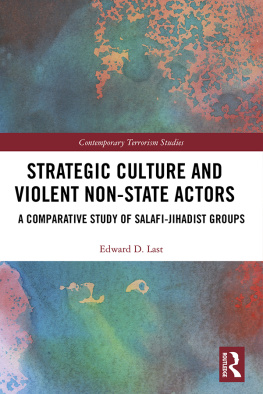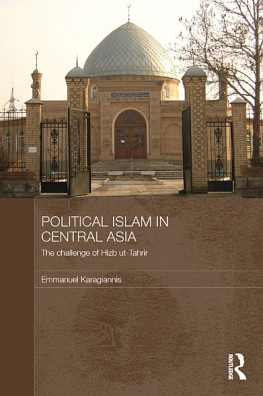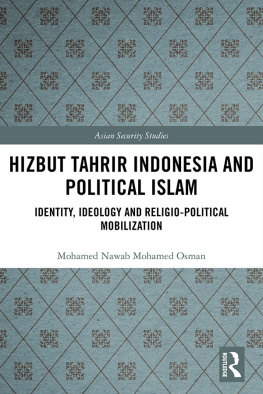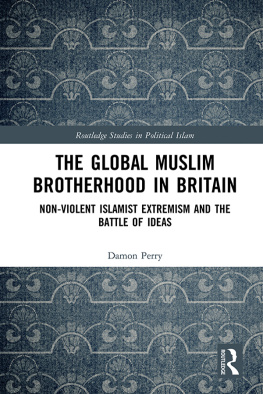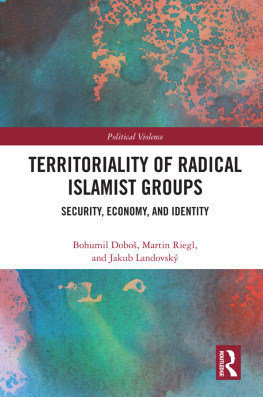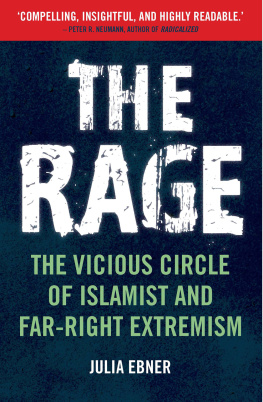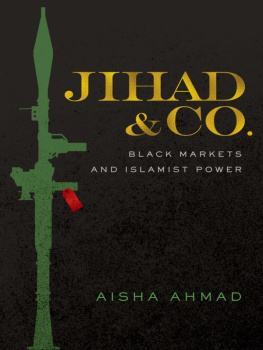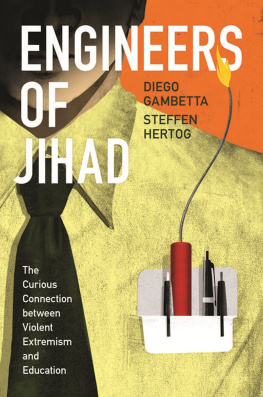
Hizb ut-Tahrir and the Caliphate
Investigating the appeal of the group Hizb ut-Tahrir (HT), the study expands on why non-violent radical forms of Islam still attract segments of Muslim communities in the West. Being one of the few comprehensive studies on HT, this book discusses how this Islamist group advocate for the caliphate and for the implementation of sharia law but also reject violence as a tool to achieve these goals.
Through interviews with current HT members, observation at HT-sponsored events and social media analysis, this book leads the reader into the world of vocal radical Islamist groups, exploring their goals and activities in Western states, with a special focus on the UK and Australia. In fact, as many other non-violent Islamist groups, HT represent the choice of all those individuals who might share Islamist arguments but who reject the use of violence. Given their non-violent nature, vocal radicals are mostly free to operate in the Western world, attracting new members, conducting a relentless campaign against the West as a system and representing a serious source of concern not only for national authorities but for the broader Muslim community.
This book stands as an original publication and paves the way to a new area of study crossing sociology, Islamic studies and political sciences. This book is one of the few contributions on vocal and radical Islamism to date.
Elisa Orofino has been researching on Islamism, terrorism and radicalisation since 2009. After completing her PhD in Islamic Studies at the University of Melbourne, Elisa joined PIER at Anglia Ruskin University in October 2018 as a Post-Doc Research Fellow. Her most recent publication is Researching Intellectual Radicals in the West (2019) SAGE Research Methods Cases.
Routledge Studies in Political Islam
This series provides a forum for the latest research on all aspects of political Islam. It includes a range of approaches and studies on individuals, movements, theory and practice.
Islamic Revivalism in Syria
The Rise and Fall of Bathist Secularism
Line Khatib
The Essence of Islamist Extremism
Recognition through Violence, Freedom through Death
Irm Haleem
Religious Authority and Political Thought in Twelver Shiism
From Ali to Post-Khomeini
Hamid Mavani
Islamism and the West
From Cultural Attack to Missionary Migrant
Uriya Shavit
Islamists of the Maghreb
Jeffry R. Halverson and Nathaniel Greenberg
The Global Muslim Brotherhood in Britain
Non-Violent Islamist Extremism and the Battle of Ideas
Damon L. Perry
Hizb ut-Tahrir and the Caliphate
Why the Group is Still Appealing to Muslims in the West
Elisa Orofino
For more information about this series, please visit: www.routledge.com/middleeaststudies/series/SE0520
Hizb ut-Tahrir and the Caliphate
Why the Group is Still Appealing to Muslims in the West
Elisa Orofino
First published 2020
by Routledge
2 Park Square, Milton Park, Abingdon, Oxon OX14 4RN
and by Routledge
52 Vanderbilt Avenue, New York, NY 10017
Routledge is an imprint of the Taylor & Francis Group, an informa business
2020 Elisa Orofino
The right of Elisa Orofino to be identified as author of this work has been asserted by her in accordance with sections 77 and 78 of the Copyright, Designs and Patents Act 1988.
All rights reserved. No part of this book may be reprinted or reproduced or utilised in any form or by any electronic, mechanical, or other means, now known or hereafter invented, including photocopying and recording, or in any information storage or retrieval system, without permission in writing from the publishers.
Trademark notice: Product or corporate names may be trademarks or registered trademarks, and are used only for identification and explanation without intent to infringe.
British Library Cataloguing-in-Publication Data
A catalogue record for this book is available from the British Library
Library of Congress Cataloging-in-Publication Data
A catalog record has been requested for this book
ISBN: 978-0-367-21942-0 (hbk)
ISBN: 978-0-429-26889-2 (ebk)
Typeset in Times New Roman
by Wearset Ltd, Boldon, Tyne and Wear
To my husband Stefano
My strength and my greatest supporter
Contents
This project explores the role of vocal radical Islamist groups and their capacity to attract new followers in Western states using HT as a case study. It is quite unusual to read the expression vocal radical in the literature, most probably because scholarship seems more interested in violent Islamist groups and in their actions all over the world. Nevertheless, before an individual becomes a violent radical, (s)he goes through a process of cognitive radicalisation that starts vocally and that does not always result in violent actions. The presence of long-lived Islamist groups like Hizb ut-Tahrir (HT, the Liberation Party) on the international scene that have never turned to violence while expanding all over the world sparked my interest in the world of vocal radical Islamist groups.
This expression is used to refer to all those Islamist groups presenting a strong anti-Western and anti-integration stance but not using violent methods. Given their non-violent nature, vocal radical groups legally operate in most of the Western world, free to carry out a number of proselytising activities such as rallies, conferences, lectures and seminars protected by respect for freedom of opinion and religion. As a result, Western countries represent a flourishing arena for vocal radicals to perform their activities and to recruit new members who might agree with the ideology of violent jihadi groups but who strongly reject their violent methods. For these people, vocal radicals represent the ideal choice to advocate for the global ummah without engaging in illegal activities.
When I first read about HT, I was quite impressed by the story of this group, which is characterised by decades of persecution in the Middle East and in the majority of the Muslim world. Nevertheless, the group has never disappeared; on the contrary, it has expanded all over the world, counting affiliates in over 45 countries. This quite unexplored niche of the literature grasped my attention as an academic and I decided to place my contribution in this realm: the appeal of non-violent (vocal) groups to segments of Muslim communities in the West.
More specifically, this book aims to identify the reasons why segments of Muslim communities in the West are attracted to radical expressions of Islam espoused by HT. While conducting research on radicalisation, I discovered that the term radical does not have a negative connotation per se when referring to Islamic groups; instead, it denotes the need to go back to the roots of the religion, and advocate for the application of sharia within a divinely inspired political setting, namely, the caliphate.


